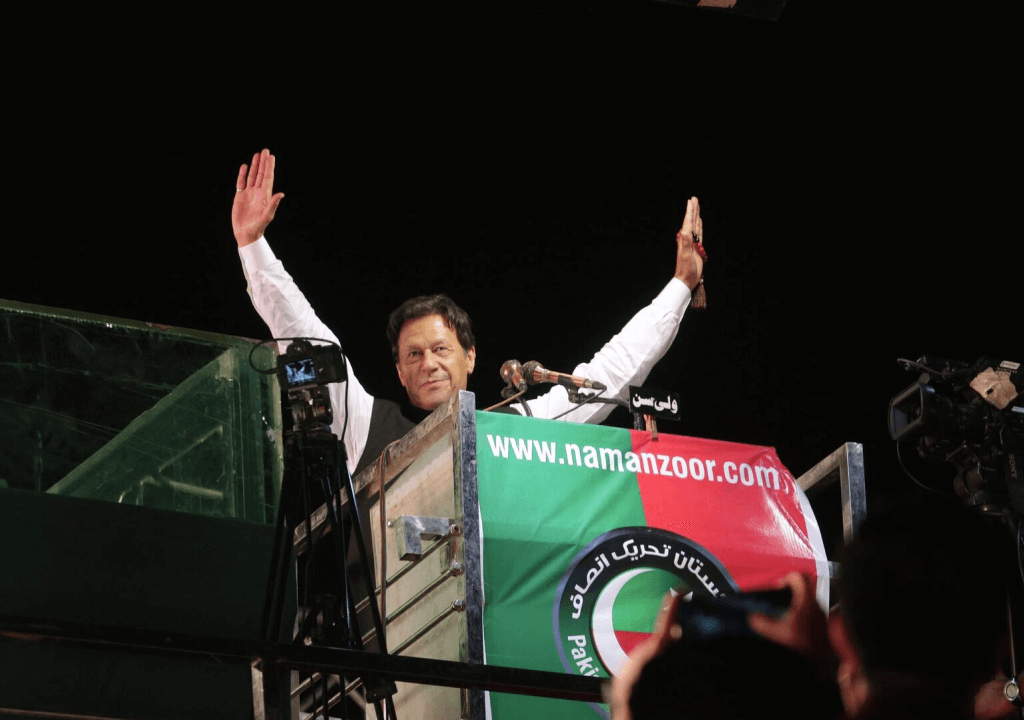The military-driven politics of Pakistan is in crisis again, with the possible return of former Prime Minister and Islamist populist leader Imran Khan and his political party to the mainstream. Major cases against Imran Khan, which blocked him from contesting in the last general election, have been suspended, including a conviction for illegal marriage that carried a seven-year sentence, a serious crime in the Islamic Republic. This conviction was overturned by a court in Islamabad on Saturday. This development raises fears that Imran Khan will actively return to politics to lead his Pakistan Tehreek-e-Insaf party against the will of the notorious military, conventional political parties, and executives.
In the highly rigged last general election, the authorities did everything to prevent Imran Khan and his party from climbing to power. Although Imran Khan remains the most popular figure in the country, he and his party were banned, and all candidates contested independently. Nevertheless, PTI independents, who didn’t even have a common election symbol as they were banned from contesting collectively, won 118 seats out of 336. Removing the cricket bat symbol, which connects people with former cricket champion Imran Khan, was seen as preventing voters from recognizing the party on ballot papers, a crucial factor considering 40 percent of the population is illiterate.
Although the number obtained by PTI independents falls far below the 169 seats needed for a majority, considering the attempts by the authorities to suppress the party, this was a significant achievement. Despite strong support from the authorities, the Pakistan Muslim League (Nawaz) only garnered fewer than 100 seats. Even though these independents secured a majority, their party was not recognized. The other parties joined to form a government under the direction of the military. The absence of Imran Khan facilitated this, but his return will likely end the dominance of the ruling alliance. His well-known ability to mobilize his supporters will likely cause more turmoil in a country already suffering from economic crises, terrorism, and poor governance.
Pakistan’s government is not ready to give up and is seeking more ways to keep Imran Khan out of politics and stop the resurrection of PTI. In the last week, a Supreme Court ruling made the Pakistan Tehreek-e-Insaf (PTI) authorized again, and they became the largest party in the country’s parliament. The Supreme Court ruled last week that PTI was a political party and eligible for 20 further seats in a post-election dispute that arose from its candidates running as independents. The ruling handed PTI members seats reserved for women and minorities, which will increase the power of PTI in parliament.
In response, the Information Minister, Attaullah Tarar, said the government would go to court to press for treason charges against Khan, adding that there are many charges that can be brought against Imran Khan. The Pakistani judiciary is notorious for such charges. Tarar said the move to ban PTI was because Khan’s supporters had targeted military installations during violence after his earlier arrest on corruption charges in May last year and over allegations of foreign funding.
The last election made it clear that Imran Khan and the PTI are the people’s choice. However, what if the people’s choice leads to suffering for the country and the region? Islamist populist leader Imran Khan can be considered a threat to the future of the country. He has chosen China over their conventional ally, the US, which poses a significant risk for both the country and the region, especially since Pakistan holds nuclear weapons, which can lead to more conflicts.
Although questioning how dangerous Imran Khan is may be secondary, it is clear that the government’s actions against him are unethical and not supported by the constitution of the Islamic Republic. The government’s movements clearly indicate a shift towards a soft martial law. And PTI has faced a severe crackdown since last year. Its leaders were harassed and arrested in the run-up to the general election, and the military forced Khan’s close aides to leave the party.
The actions of the Pakistani government are a significant blow to democratic norms, especially given that the Supreme Court has unanimously ruled that PTI is a legitimate political party. Imran Khan, who has been saved by the court on many occasions, may get arrested again, but this will lead to more division in Pakistani politics and probably more anarchy and violence.








